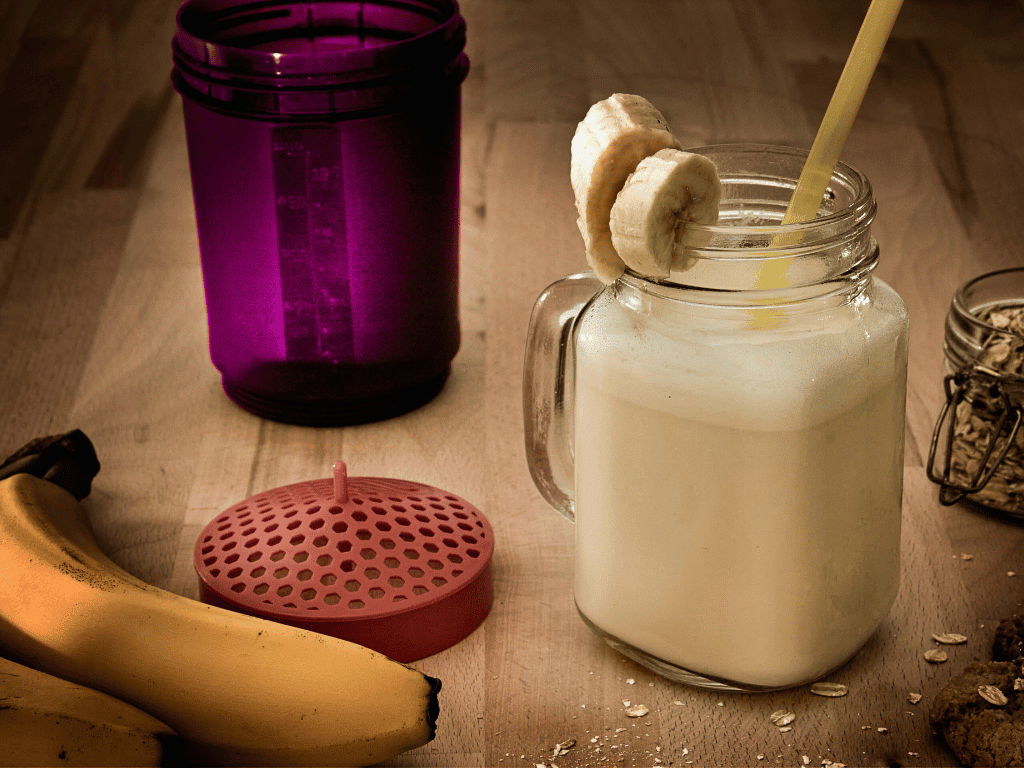
When it comes to protein powders, there are a lot of choices out there. The two most common options are whey protein and plant-based protein.
But which one is better?
Let's find out.
Understanding Protein – The Basics
Protein is like the body's building blocks. It's in almost every part of you – your muscles, skin, hair, and even your blood.
Imagine it as tiny workers that keep everything running smoothly inside you.
When you eat food with protein, your body breaks it down into smaller parts called amino acids.
These amino acids are like puzzle pieces that your body uses to build and repair your body.
Protein isn't just about making your muscles big and strong. It's also vital for your immune system, helping you fight off sickness and infections.
It even plays a role in making hormones that control everything from your mood to your appetite.
Now, not all proteins are created equal. Some foods have more protein than others, and some proteins have different amino acid profiles.
There are 20 different types of amino acids, and your body can make some of them on its own. But there are nine that it can't make, so you have to get them from food. We call these nine, essential amino acids.
That's why it's essential to eat a variety of protein sources to make sure you're getting all the amino acids your body needs.
Protein comes from both animals and plants.
- Animal sources include meat, poultry, fish, eggs, and dairy products like whey, milk and cheese.
- Plant-based proteins, like pea and rice proteins, come from beans and grains. They can also come from lentils, nuts, and seeds.
Each type of protein has its benefits, so it's good to mix things up and enjoy a balanced diet.
Comparing Whey and Plant-Based Protein Powders
When it comes to protein supplements, two options dominate the market: whey protein and plant-based proteins.
While both aim to provide the body with essential amino acids, they differ significantly in their composition, sourcing, and potential benefits.
Let's explore the key differences between whey and plant-based proteins to help you make an informed choice.
Source
- Whey protein is derived from milk during the cheese-making process. It contains all nine essential amino acids and is a complete protein source.
- Plant-based proteins are sourced from various plants such as peas, soybeans, rice, hemp, or quinoa. They may be low one or more essential amino acids, making them incomplete proteins, although combining different plant protein sources can achieve completeness.
Digestion Rate
- Whey protein is rapidly digested and absorbed by the body, making it ideal for post-workout recovery.
- Plant-based proteins are more variable but generally moderately to fast in digestion and absorption depending on fiber content and protein concentration. Some plant-based protein powders with little to no fiber like rice protein show moderate absorption rate compared to whey.
Allergies and Sensitivities
- Whey protein can cause allergic reactions in individuals who are allergic to dairy. It can also cause gastrointestinal issues in those with lactose-intolerance or sensitivities.
- Plant-based proteins are generally free from common allergens like dairy and soy, making them suitable for people with food sensitivities or allergies.
Nutritional Content
- Whey protein is high in branched-chain amino acids (BCAAs), particularly leucine, which plays a crucial role in muscle protein synthesis.
- Plant-based proteins are moderate in BCAAs compared to whey but offer additional nutrients like fiber, antioxidants, vitamins, and minerals depending on the source.
Environmental Impact
- Whey protein production can have a higher environmental footprint due to the intensive farming practices associated with dairy production.
- Plant-based proteins typically have a lower environmental impact as they require fewer resources like water and land compared to animal-based protein sources.
Sustainability
- Whey protein production is linked to the dairy industry, which can raise concerns about animal welfare and sustainability.
- Plant-based proteins are often perceived as more sustainable since they do not involve animal farming practices and may have a smaller carbon footprint.
Taste and Texture
- Whey protein usually has a creamy texture and a mild, slightly sweet taste, making it versatile for blending into shakes and smoothies.
- Plant-based proteins vary in taste and texture depending on the source. Some may have earthy or nutty flavors and can be grainy or gritty in texture. Growing Naturals rice and pea proteins are known to be exceptionally neutral tasting making them ideal for shakes and smoothies.
When choosing between whey and plant-based proteins, consider your dietary preferences, nutritional needs, allergies, environmental concerns, and personal taste preferences.
Both options can be effective sources of protein, but it's essential to select the one that aligns best with your lifestyle and goals.
Opting for a Plant-Based Protein Future
When it comes down to it, choosing between whey and plant-based protein is about more than just what's in your shake.
Plant-based protein is better for you and the planet. It's easy to use and has tons of health benefits.
So, next time you're thinking about protein, consider going plant-based.
Ready to transform your health journey with the purest, plant-based nutrition?
Dive into the world of clean, sustainable protein with Growing Naturals.
Explore our range of organic, non-GMO vegan protein powders today and take the first step towards a healthier, greener future.
Your body and the planet will thank you!
